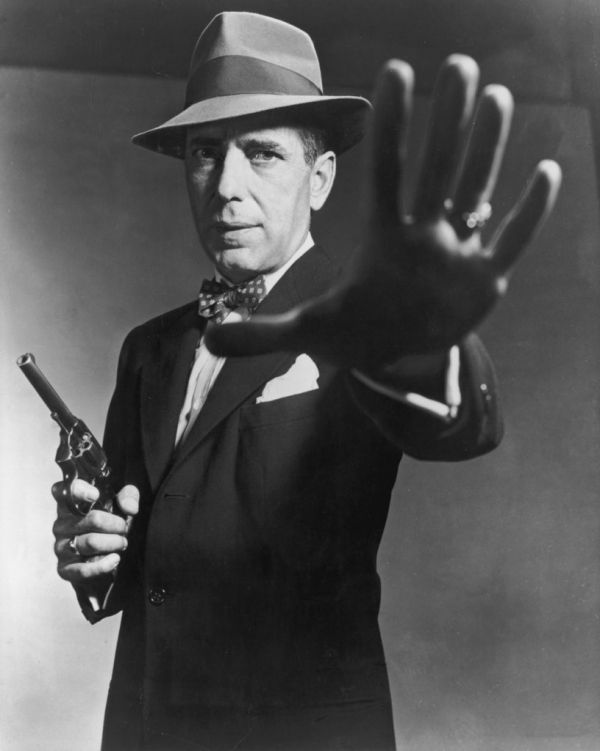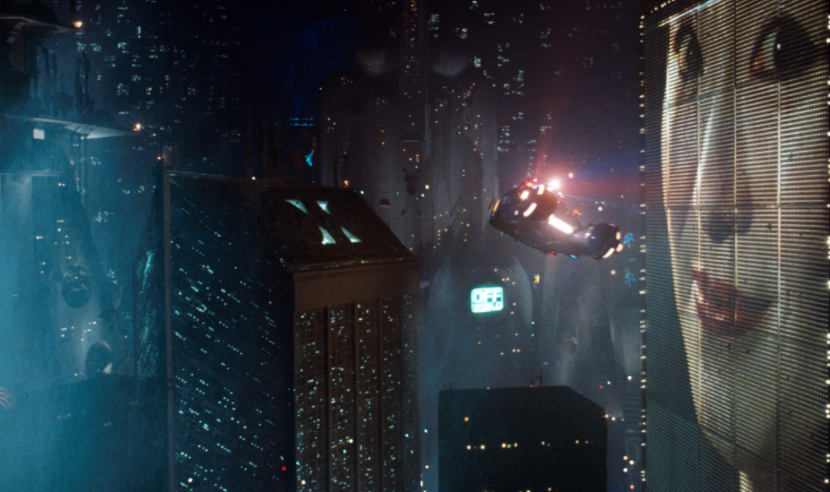There are a lot of sub-genres in science fiction and I’ll be writing in quite a few of them. However, for Liquid Cool, my sci-fi detective thriller series I chose cyberpunk. But it’s my cyberpunk reimagined! Authors like Philip K. Dick, William Gibson, and Neal Stephenson are the most famous and the singular greatest movie of the genre is Sir Ridley’s Scott’s classic Blade Runner from 1982. The cyberpunk genre is still well-regarded when its golden years, at least in Hollywood, ended back around 1985—that’s over thirty years ago now—though interest exploded again with the Matrix movie trilogy.
Why the interest in this category of science fiction? There was the utopian science fiction, “Star Trek-ian,” society, learning lessons and evolving into something better–or at least, wanting to. However, back in the ‘80s we were still in the Cold War—America versus the Soviet Union. Science fiction writers can show us the hopeful, but they can also show us versions of the likely, or what they feel to be likely based on the current societal trends. Enter cyberpunk and dystopian science fiction.
The darker side of science fiction is not new. Mary Shelley gave us the first science fiction novel with Frankenstein in 1818 and it was a dark and frightening one. Classic science fiction on television like The Twilight Zone and The (original) Outer Limits more often than not showed very dystopian futures and science (or man) gone awry. But cyberpunk gave us a new twist that endeared not only me, but millions of others and has never completely gone away–a gritty science fiction on the streets.
With my new cyberpunk series, I put my own twist on the sub-genre. How? Construct a future from the current time into a cyberpunkish future? No. That’s not particularly creative in my mind. I wanted to re-imagine cyberpunk not as a writer in the ‘80s projecting out to 2015 and beyond. I would be a writer from that future, pretend I was back in the ‘80s, and write a different dystopian future. Here’s my Top 10 List!
1) Old = Mega-corporations. New = Mega-corporations and Uber-governments.
This has not only been a staple of cyberpunk, but many books and movies, especially conspiracy ones. The ubiquitous, all-powerful megacorporations controlling governments or replacing them altogether. Well, this is not the ‘80s and it’s okay to feature dastardly megacorporations like the Weyland Yutani Corporation from the Alien movies, but we’re missing the big, fat elephant in the room—government! My series has its own “Cold War” but the opponents are mega-corporations and uber-governments—both vying against each other for ultimate control. But interestingly, there are many people in both camps fighting to make sure that neither one ever does.
2) Old = Japan rules the world. New = Heavy Asian influence, including cool samurai swords.
Back in the ‘80s, there was also something else happening on the economic stage: the rise of Japan as a major economic global power. The first Die Hard movie, Rising Sun (Michael Crichton’s blockbuster book that became a mediocre movie), and Gung Ho. Americans really did think Japan was going to economically take over the world and cyberpunk seemed to incorporate this fear. Japan does play a major role in my series because of specific industry—bionics (yes, cyborgs!) But the world of my series will read more like that of the old accounts of New York’s urban, ethnic melting pot with one ethnic group dominating specific areas or industries, including China-Town and Old Harlem. As for Japanese samurai swords, they’re just cool so they’re in.
3) Old = Digital rules. New = Analog versus digital.
Much of the science fiction of that era was very prophetic. The big thing they missed was the pervasiveness of the cell phone/smartphone, but no one could predict Steve Jobs so that can be forgiven. Also, since those writers were in the dawn of the computer age, they correctly foresaw past the Analog Age to the Digital Age, even if their view of digital was stuck in an old Atari game framework (a la the movie Johnny Mnemonic). The power of digital technology is quite astonishing, but so are the dangers. Hackers have gotten into the credit card records of major companies and even into the secret systems of the United States government–including the White House! We are in the digital age and we’re never going back, but my series does an interesting thing. It will have both technologies in its world fighting it out in the consumer marketplace and will provide a means to have some poignant examinations of technology as it relates to our daily lives.
4) Old = Robots, cyborgs and synthetic humans. New = No synthetic humans, but robots and cyborgs galore.
In the next book of my first After Eden series, there will be a scientific group that sets out to prove beyond the shadow of a doubt that there is no God. They end up (according to them) doing quite the opposite. In cyberpunk stories, man is able to create biological humans and androids indistinguishable from actual humans, or create robots with such advanced artificial intelligence that they inevitably have to be classified as sentient beings. I personally believe we be able to create an illusion of the former, but never the latter. Unfortunately, I believe we will be able to cheat and create all kinds of things that we shouldn’t and will pay a heavy price for it. Futurist and theoretical physicist Michio Kaku said it best when he described our most advanced robots as having “the intelligence of a retarded cockroach.” On the machine side, we will continue to advance, but to get to the point of sentience, I think not. That is not to say that we won’t turn over large parts of our life to some version of artificial intelligence—oops, oh wait, too late, we already do—and will continue to expand that. We will also advance our bionic technology. I do look forward to that day when we can say we’ve eliminated paralysis, blindness, and deafness from the world. Yes, we will achieve those things. “Brain-reading” technology is science fact, not science fiction anymore. But plugging brains into machines and downloading a person’s life essence into a robot will remain science fiction. In my cyberpunk series, they spend no time on notions of creating life, but in the practical (and profitable) realm of improving life through technology, especially mechanical. The “higher end” fixes involving genetic engineering and manipulation is reserved for the upper class. For everyone else, it’s the $999.99 bionic hand.
5) Old = Flying cars. New = Well, yeah!
There are many, many reasons why even if we could make the technology economically sound that we would never have the flying cars as seen the Fifth Element movie or any of the Star Wars films. For one simple word: terrorism. In my new series, they find a way to make it feasible for the simple reason that they have no choice. They are just too many people packed into their urban cities that roads have to be the skies. There are also other peculiarities of their metropolis that make this path the one their society embraces which doesn’t apply to us.
6) Old = A dark and rainy world. New = Same, but for different reasons.
The movie Blade Runner has done more to burn an image of an authentic cyberpunk world into our minds than any other. It’s strange because the movie was not a box-office success when it was first released, but became the cult classic from video and DVD rental stores (remember those). I keep this tenet but the reasons are different. In cyberpunk stories of old, the dark skies and constant rain speak to environmental damage of us humans. In my series, the reasons are quite different and have nothing to do with environmental catastrophe but from millennia old struggles of social class.
But even separate from the reason for the look of a cyberpunk world is the fact it fits the cyberpunk underlying theme of “high tech and low life” – a grimy, neo-noir landscape where the powerful lord over the powerless masses below.
7) Up-Top
Another major component of the Liquid Cool series is that humans have colonized the moon and Mars and yes, Earth does call them Spacemen and Martians. But these inhabitants that live off-world are the super-rich alone. Off-world, or colloquially known as “Up-Top,” does incorporate much of the qualities of old cyberpunk in that their government is a single megacorporation, and the Founders are more ruthless than any Earth crime family when it comes to protecting their interests. And, they actually do travel in flying saucers.
8) Who Cares About Race?
Well, not Liquid Cool. The series is probably one of the most racially and ethnically diverse science fiction works out there and—no one cares. Class and status are what people care about. There’s every race, ethnicity, nationality, and language spoken that exists on Earth in the 50-million supercity of Metropolis, but the only mention of it is a mere descriptive word or two, that’s it. Some of us might say: isn’t that how it’s supposed to be? It’s the future.
9) No VR
Virtual reality—called virtual life in the series—plays a major role in other cyberpunk novels, but not in Liquid Cool. It exists for gamers and “virtual lifers,” who spend endless hours living in virtual worlds of their creation, but other than one case (in a big way) it will not play prominently in the series. Why? The series rejects the science fiction premise that we will be able to plug our minds into computers, virtual or otherwise.
10) Film Noir of the Past, New Cyberpunk for Today

The very first full novel I ever wrote was a mystery when I was a child in elementary school. I loved a good mystery (I was a Hardy Boys reading fanatic), but also loved science fiction to the point that I was actually thinking of working for NASA by the time I was in middle school. In my Liquid Cool series, I get to combine the best of both worlds–a hard-boiled (actually soft-boiled) detective in a cyberpunk world.
As a movie buff, I’ve seen more mystery and detective movies and television shows than I can count, but as an on-screen detective, Humphrey Bogart still—seventy years later—still ranks as one of the best. I always did like film noir that really elevated black-and-white filming to an art form. The shots and shadows were like another character of the movie to create a gritty world more real than real.
If I wanted to merge that theme with a science fiction sub-genre then cyberpunk would be it. It’s far from only black and white. The colors are endless, bold, and in your face, but it’s all muted its own shadows of mega skyscrapers, ever-dim skies, and much of the time…the rain. The perfect combination to create a neo-noir setting for my detective; his friends, “frenemies,” and enemies; assorted clients, and very bad guys. A world filled with a lot of high-tech and a lot of low lives. The world of cyber-noir.
In it, crime never dies. Bad guys never go away. Liquid Cool doesn’t forget what the important struggle is in the series. This is a detective story! Our hero detective, Cruz, is battling criminals and solving crimes as a street-wise Metropolis private detective. That’s the core and the science fiction is just the backdrop for the stories. It thrills with the action. It even makes you laugh. But it never forgets that it’s a detective story in a science fiction/cyberpunk world, not a cyberpunk series trying to force a contrived detective narrative. That’s people love it and why over 80% of the reviews are four and five-star reviews.
We count down to the next two Liquid Cool novels this year. New release feature coming soon!
#Cyberpunk #ScienceFiction #BladeRunner #LiquidCool
If you aren’t already a VIP member, sign up to my list HERE and get the ebook prequel along with three other novels FREE.
What do you think about my “Top 10 Themes of my New Cyberpunk Sci-Fi” World of Liquid Cool? Leave a Comment Below.

Austin Dragon is the author of over 30 books in science fiction, fantasy, and classic horror. His works include the sci-fi detective LIQUID COOL series, the epic fantasy FABLED QUEST CHRONICLES, the international futuristic epic AFTER EDEN Series, the classic SLEEPY HOLLOW HORRORS, and new military sci-fi PLANET TAMERS series. He is a native New Yorker but has called Los Angeles, California home for more than twenty years. Words to describe him, in no particular order: U.S. Army, English teacher, one-time resident of Paris, ex-political junkie, movie buff, Fortune 500 corporate recruiter, renaissance man, futurist, and dreamer.
LATEST RELEASES: CRAZY MISADVENTURES IN LIQUID COOL and A MONSTROUS GAME!





165 Responses
Hmm, I can see why you’re going the way that you are in this series and I love the concept. As far as the detective/mystery setup goes Bladerunner, and it’s source Do Androids Dream of Electric Sheep by Philip K. Dick, was a detective story. The two share concept and characters but are otherwise very different–and I’m not sure Philip K. Dick ever realized he
was writing one of the first cyberpunk novels. Mainly because his focus is not on Artificial Intelligence per se but on constructed humans and what makes us human to begin with. For the record I do not see a human type reasoning artificial intelligence in the future unless someone or more likely several someones makes a quantum breakthrough in AI creation and development. Computers compute, they do not reason or use intuition; an AI’s world is verifiable facts/cause&effect, not ‘what if’ lateral thinking that is only loosely based on fact.
I like your top 10 themes. So interesting.
Always loved how you have played Cruz and adding in the other planet opens this up a lot more. Yes a lot of the stuff is very classic that we know and live because of Blade Runner opening this up to a wider audience but keep with the way your going.
Love it.
Right up my alley, Great…